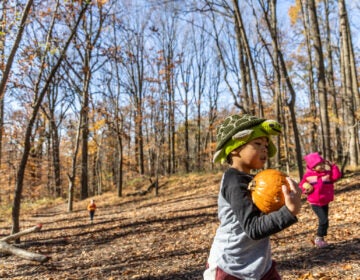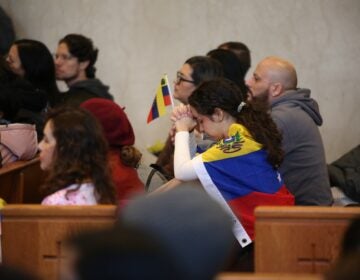In final weeks, fight over Philly sugary drinks tax moves from air to the ground
Listen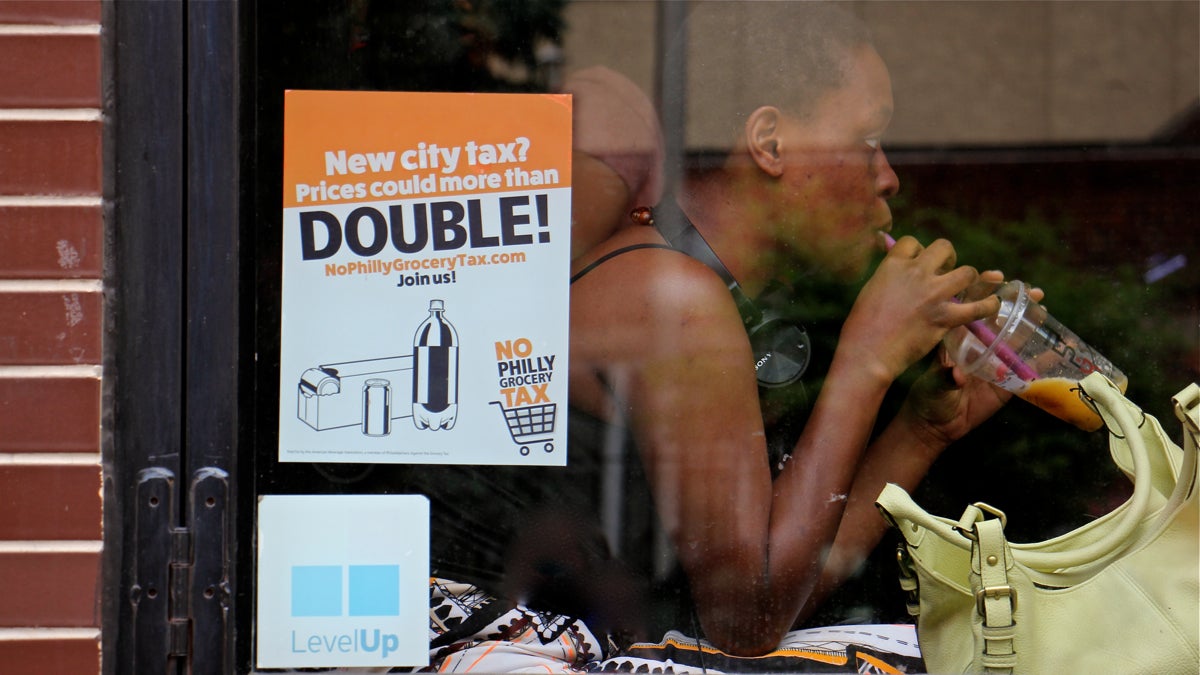
A customer enjoys a bubble tea at TeaDo in Philadelphia's Chinatown neighborhood. The proposed sugary drink tax would add three cents an ounce to the cost of a beverage. (Emma Lee/WHYY)
These days, the phones are ringing off the hook in City Council offices at Philadelphia City Hall with residents calling to share their views on Mayor Jim Kenney’s proposed tax on soda and other sugary drinks.
“Eight o’clock in the morning was the first call,” said Marie Beren, a constituent services representative for Councilman Mark Squilla on a recent weekday morning.
Beren, who held the same job during similar battles when former Mayor Michael Nutter tried and failed to enact a similar tax, says she’s fielding a lot more calls this time and for other employees like her, that’s making it difficult to get much else done.
About two weeks ago, Michael Lane, a constituent services representative for Councilman Curtis Jones Jr., said he was working with an 80-year-old woman whose water service had been shut off when he started receiving a barrage of calls about the tax.
“When the commercial airs, it floods the phone lines,” said Lane, who had to leave the office to find another phone to work on getting the woman’s water turned back on.
This influx of calls is the result of a serious air and ground war being fought by adversaries in the sugary drinks tax clash.
So far, the American Beverage Association has spent about $3.9 million on TV and radio ads against what it’s calling a “grocery tax.” Philadelphians For A Fair Future — the group promoting the measure on the mayor’s behalf – has spent at least $1 million, according to Ken Snyder, a founding partner of the Snyder Pickerill Media Group.
With City Council expected to vote before the end of next week, the battle is moving from the airwaves to the streets.
Both sides stepping up the ground war
Last week, on a hot afternoon, Abu Edwards, a professional field organizer, was out canvassing in South Philly. He’s being paid by the Philadelphia Parks Alliance, which is part of the pro-tax coalition.
Edwards approached Elton Thorpe as he was getting ready to cross Ellsworth Street and asked how he feels about the “soda tax.”
“I don’t feel too good about it,” Thorpe said. “I don’t drink a lot of soda.”
Edwards asked if he thinks the money is going to the right causes, but “I don’t even know where the money is going,” Thorpe admitted.
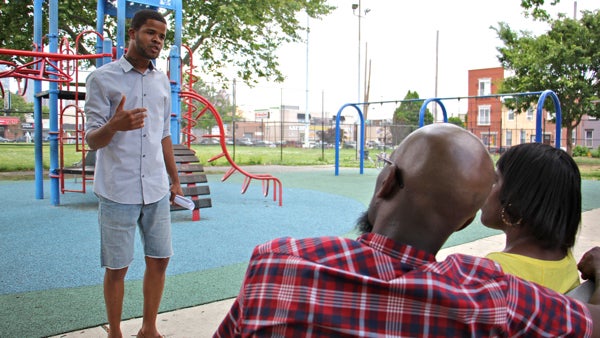
Edwards explained the tax could generate $400 million, revenue that would go toward expanding pre-K and fixing up the city’s aging parks, rec centers and libraries. He gave Thorpe a flier for a rally at Chew Recreation Center down the block and pressed him to call his councilman, Kenyatta Johnson “and say listen, where are you at on this issue? And our kids deserve to be first.”
After the two men parted ways, I asked Thorpe what he thought about the tax after hearing Edwards’ pitch.
“If they taking that kind of money out of our community from our stores and putting it in something that’s positive, I would go with it,” he said. “But if it goes somewhere where it’s not needed, then that’d be that.”
Thorpe told me he would “definitely” give Johnson a call.
That’s the result both sides are aiming for.
“You want individual city council people to be contacted by their constituents,” said Larry Ceisler, who runs the public relations firm that’s working for the American Beverage Association to fight the tax. He’s also a veteran political consultant and said in many ways, it’s similar to running a political campaign, except it’s not about getting the public to vote.
“It’s about 17 members of city council,” Ceisler said. “So at least in our case, what we’re trying to do is we’re trying to educate and persuade the public in the hopes that they will talk to and contact their city council members and city council members will get to hear our arguments also.”
To that end, both sides are employing similar tactics — canvassing, mailers, posts on social media, robocalls and live phone banks – and then there are unique methods.
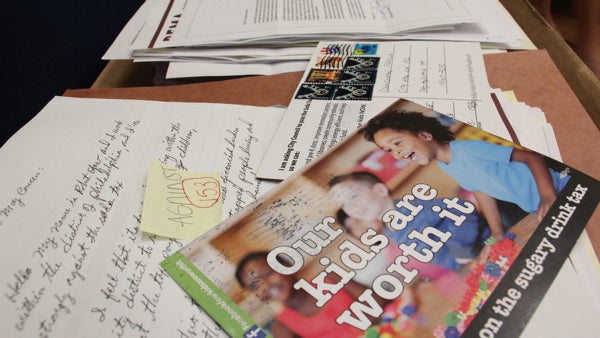
Recently, some preschool providers who support the tax sent children’s drawings to council members, while the group opposed delivered gift baskets filled with items that would be taxed, such as vitamin water and bottled Starbucks Frappuccinos. “Not just soda,” read a note inside.
Both sides have hired professional organizers and consultants to mobilize people like Adam Xu, president of the Asian American Licensed Beverage Association of Philadelphia. With support from David Dunphy, a political consultant working for the American Beverage Association, Xu has been helping the cause by getting his roughly 230 members, restaurant and corner deli owners, to put up posters, talk to their customers and participate in protests.
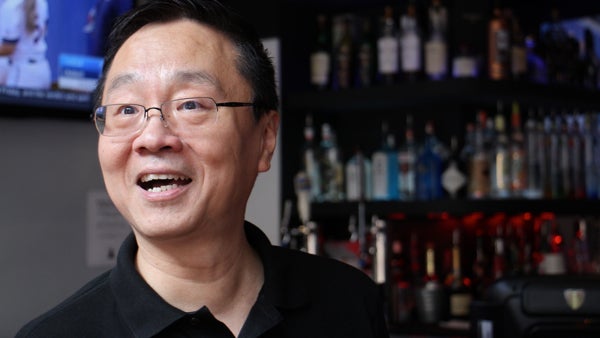
“Of course, nobody is willing to pay more for the same product,” Xu said. “We got thousands of petition signatures from customers, from store owners and organizations and we passed it on to all the city councils.”
‘I think we’re going to do something’
As a council vote approaches, it’s clear there’s one big difference between this battle and a political campaign: it can end in a compromise.
Last week, Council President Darrell Clarke sent a memo to members outlining alternatives to Mayor Kenney’s proposal for a 3-cents-per-ounce-tax on sugary drinks. None of them include a levy higher than 1.5 cents-per-ounce. Some include taxing diet drinks, too.
Councilman Bill Greenlee, whose office has also been flooded with calls, letters and petitions, couldn’t say exactly what will happen next, but “I think we’re going to do something,” he said.
In other words, while the ground war continues, the real action will be happening behind closed doors in City Hall.
WHYY is your source for fact-based, in-depth journalism and information. As a nonprofit organization, we rely on financial support from readers like you. Please give today.


